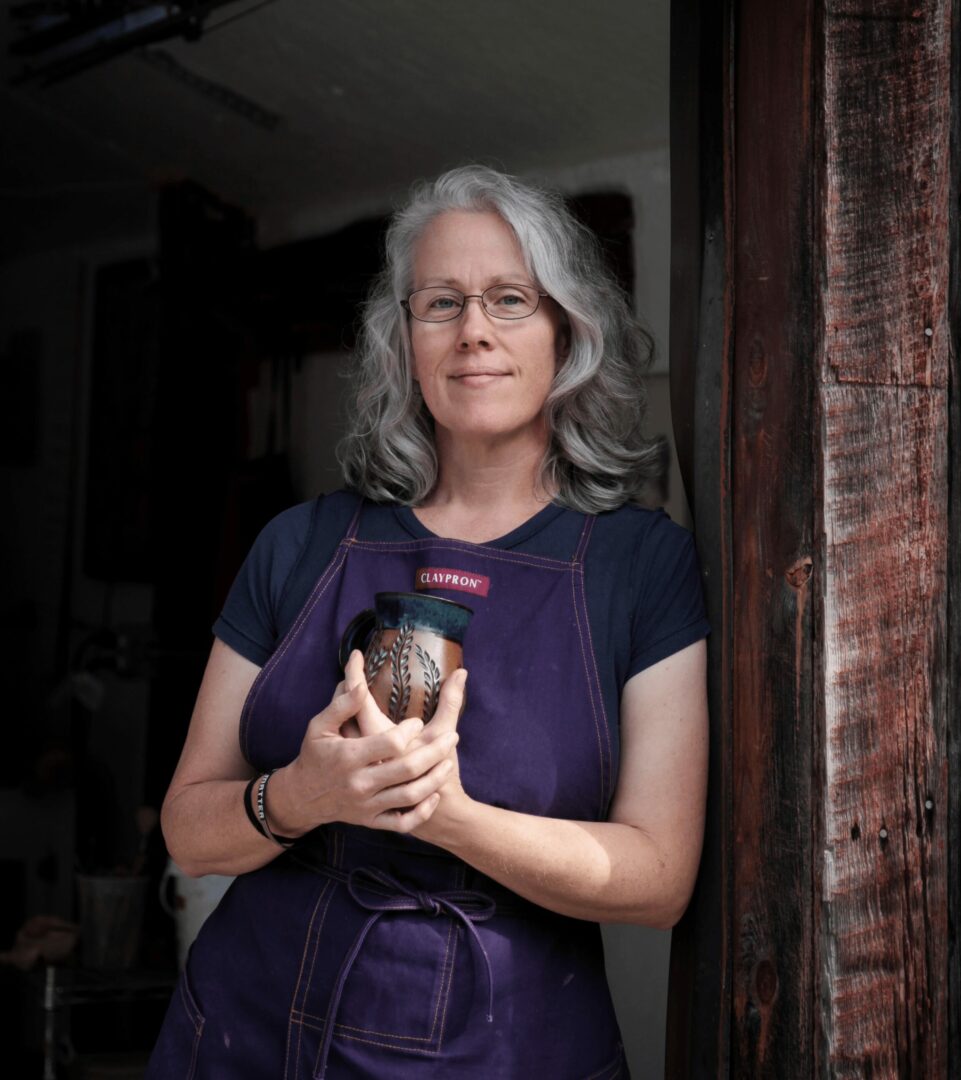We caught up with the brilliant and insightful Jen Meyers a few weeks ago and have shared our conversation below.
Jen, so excited to have you with us today. So much we can chat about, but one of the questions we are most interested in is how you have managed to keep your creativity alive.
This is such a great question because we can all get stuck, feel like we’ve run out of ideas, or just get tired of doing the same thing. For me, I find that doing lots of different creative things (pottery, writing, drawing, knitting, baking) keeps my creative juices flowing. One creative thing feeds another. But also recognizing when you need a break, and allowing yourself to take one, is so important and, for me, is often where the magic happens. Breaks let me come back to my creative work with renewed energy and ideas. Going for walks, reading, daydreaming, sketching ideas, scrolling through social media looking for inspiration (but not comparison—that’s deadly to your creativity)—each of these things give my mind the space and time to either come up with new ideas or problem solve.
The other thing that I think is vital to creativity is embracing failure. It’s truly the only way learning happens, and what is creativity if not a constant cycle of learning/making/doing something new?
You don’t learn by doing the thing perfectly the first (or second or tenth) time. You learn by *not* doing it perfectly. Or by failing spectacularly. Or somewhere in between. And practicing to get better, growing your skills by paying attention to what’s working AND what’s not working. There is nothing wrong with failing. It’s not something to be ashamed of or something to try to avoid at all costs. When you fail, you learn what doesn’t work. And so, if you pay attention to what you were doing that didn’t work, you can make an adjustment and try again. And again. As many times as you need.
Pottery is a perfect practice in failing and learning until you figure out how to get the result that you want. Learning to throw on the wheel is so utterly frustrating and unbelievably satisfying when you learn (through lots of practice and failure) what works for you. There is no one right way to do anything in pottery, and what works for you may not work for someone else. But isn’t that also true in any creative endeavor? And in life? Keeping your options, eyes, and heart open to learning is how to keep creating. And being able to recognize that you’re improving, even if you’re not where you want to be yet, is vital to your growth in whatever you do.
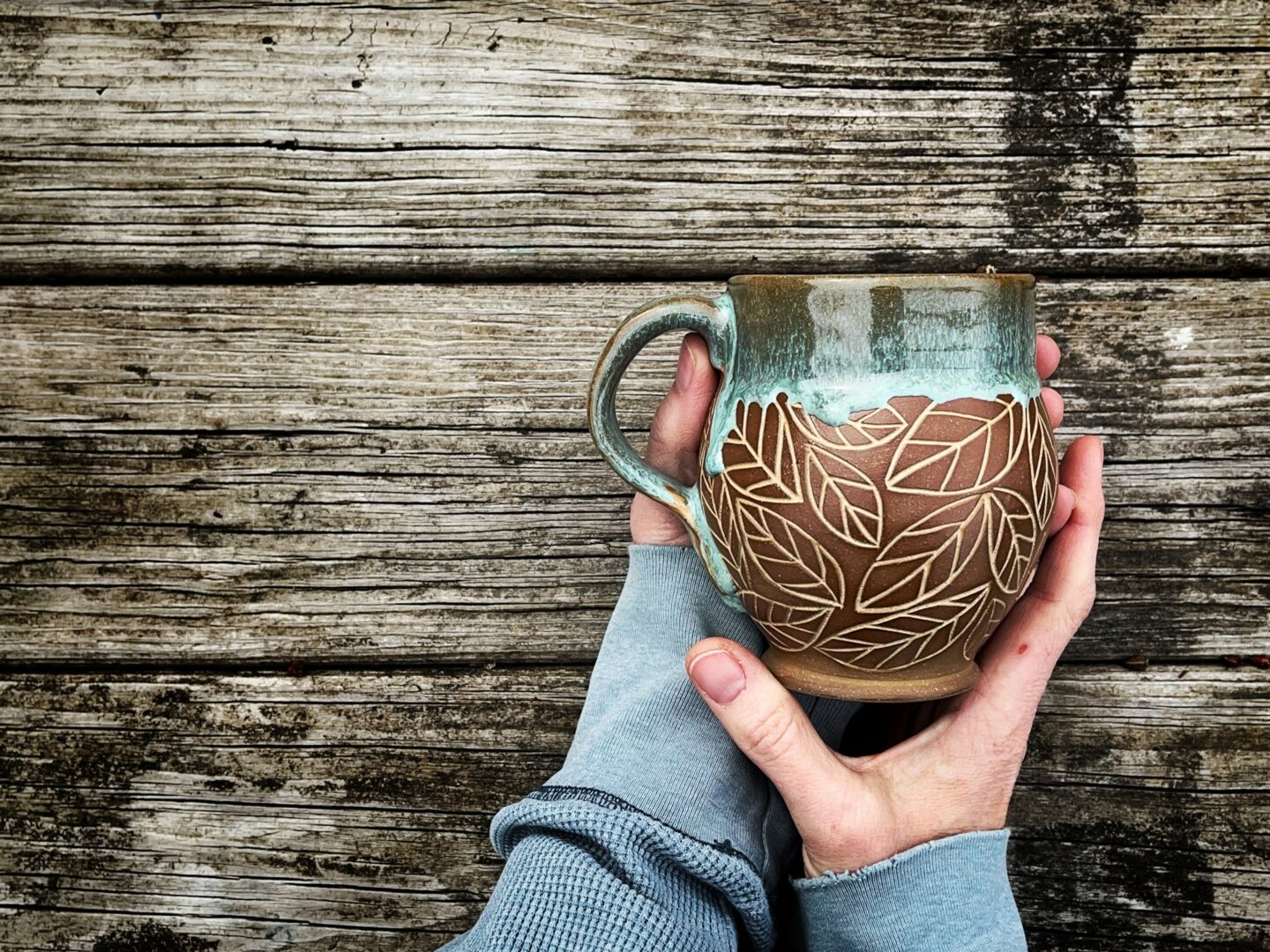
Let’s take a small detour – maybe you can share a bit about yourself before we dive back into some of the other questions we had for you?
Making pottery feeds my soul like nothing else I’ve ever done. I have always loved handmade pottery, but only learned how to make my own when, out of the blue, my husband gifted me a pottery class in 2018, knowing I’d always wanted to learn. I fell in love on day one of class (of COURSE I did), and it started me on this particular creative path.
I stumbled into my signature style of hand-carved designs with the surrounding clay left bare when I started using black and brown clays—they were simply too beautiful to hide completely beneath glaze. My style is time-consuming and challenging to glaze, and, honestly, every time I glaze my pots, I begin to question my life choices. But then, when they come out of the glaze fire? I am incandescently smitten all over again.
What I think makes my style extra special is that not only are they beautiful to behold, they are also a tactile delight—you can’t help but touch them. Whenever I have a mug in my hands, I find myself running my fingers over the design constantly because the feel of it is so satisfying—the juxtaposition of the edges of the carved lines and the butter-smooth clay surrounding it just feels so good. And because I carve freehand, every piece is unique and a one-of-a-kind creation.
Mostly, I sell my pottery through my website and directly out of my studio, and am slowly branching out into doing a couple of in-person markets each year.
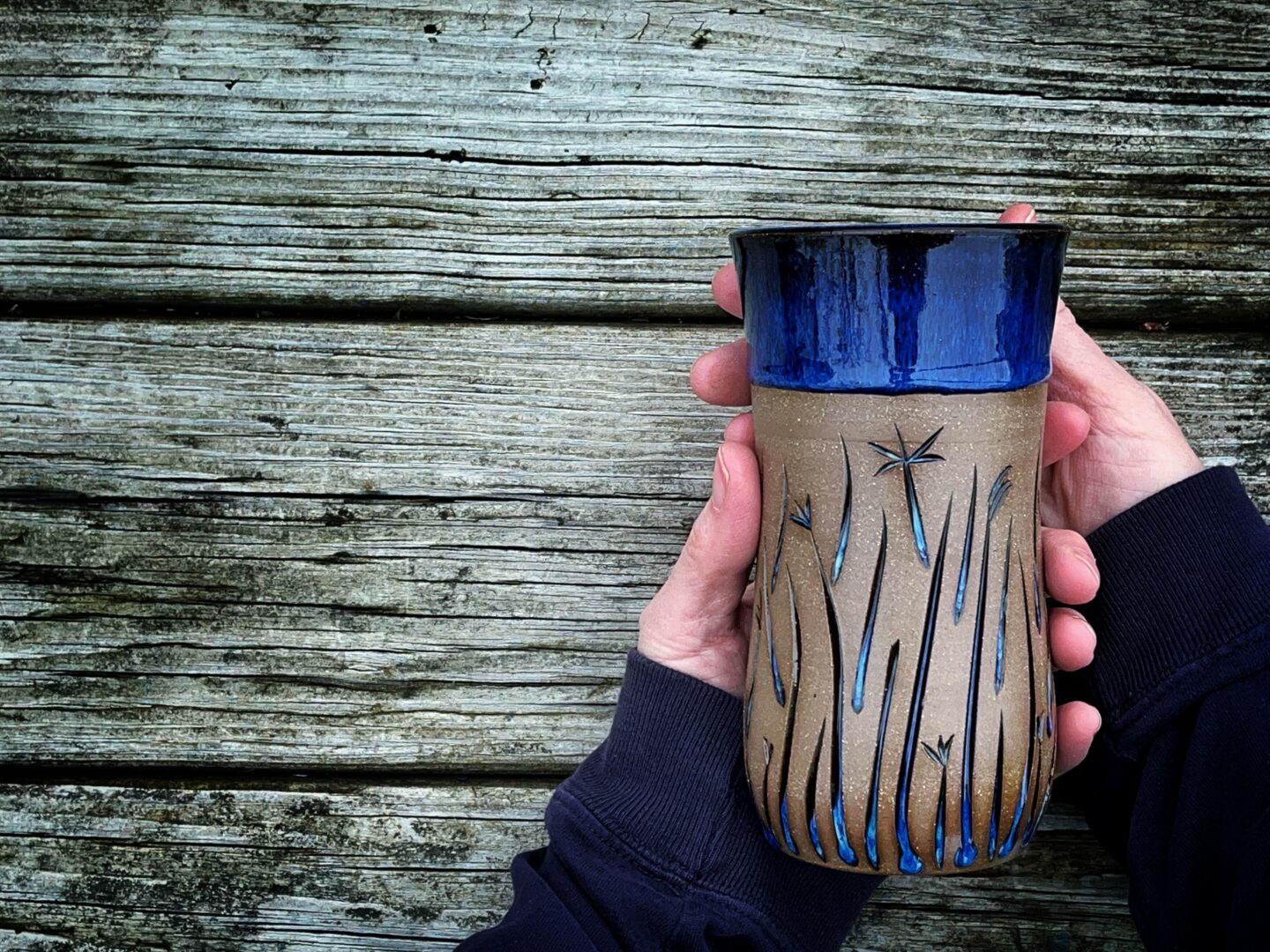
There is so much advice out there about all the different skills and qualities folks need to develop in order to succeed in today’s highly competitive environment and often it can feel overwhelming. So, if we had to break it down to just the three that matter most, which three skills or qualities would you focus on?
Definitely my love of learning, ability to embrace failure, and approaching things with a childlike confidence. I’ve already talked about the first two, so I’ll just say: stay curious and don’t take failure personally or as a sign that you can’t do the thing. Just get up, dust yourself off, and try again.
I think the most impactful quality I have is the childlike confidence that I can do the thing, whatever it is, even if I’ve never done it before. I don’t have this feeling about everything (don’t ask me to change the oil on my car or take apart a blender motor to fix it–my brain doesn’t work that way), but there have been things throughout my life that I’ve just assumed I could do…and then did them because I didn’t know it was considered “difficult.”
When I was in my early twenties, I decided to make a pie one day, never having done it before. I looked up a recipe for the crust, threw it together, made the filling, and baked the pie. I was so delighted with it, I told my coworkers about it the next day. One of them said, slightly aghast, “You made the pie crust from scratch? But that’s so hard!” If I had known or thought it was hard to do, I might never have tried. But I’ve been baking pies ever since.
I had the same kind of experience with knitting. A dear friend made the most beautiful Icelandic sweaters, always telling me how easy they were. So, I asked her to teach me. She suggested I make a scarf first, but I didn’t want to make a scarf. What I really wanted to make was a sweater like the ones she made. And so I did. It took me two weeks, and I’ve been knitting sweaters ever since. (And I still don’t like to knit scarves.)
This is all just to say…assume you can. Because if you want to learn how to do something, you will. Will it be easy? Maybe. But maybe not. Will it be frustrating? Probably at times. But if you assume you can and you want to do it, you will.
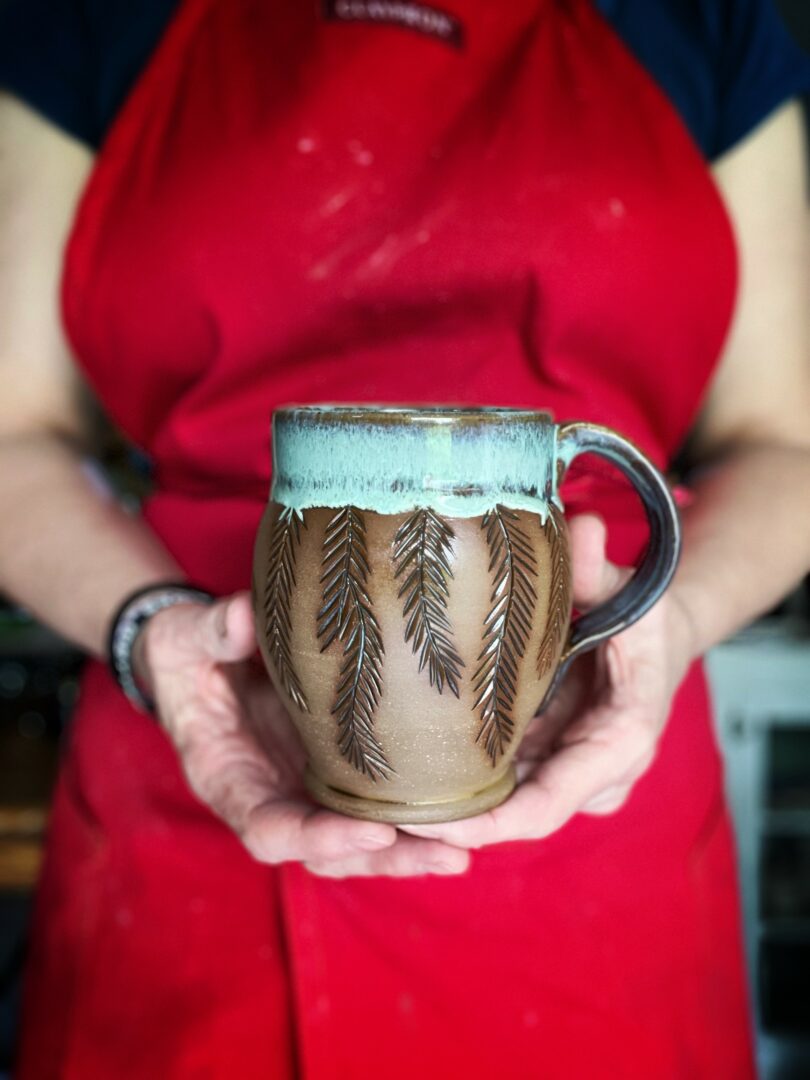
Do you think it’s better to go all in on our strengths or to try to be more well-rounded by investing effort on improving areas you aren’t as strong in?
It really depends on what you mean by that. If you’re asking whether people should try to make themselves more “well-rounded” in life by doing things they don’t have much interest in, then no. Absolutely not. Don’t waste your time. Life is way too short to do things you don’t want to do. Follow your interests, feed your passions, ask questions, stay curious, but don’t waste time on things you have no interest in.
But if you’re talking about getting better at things that affect your life, like, for me, the business side of things as an artist, that is absolutely valuable. Because to do the art and make a living at it, you have to also be able to think about it from a business perspective. I love making pottery, and if that was the only thing I had to do, I would be THRILLED. But, as a one-woman business, I am not only the artist, but also the marketing department, sales team, website designer, and social media manager. I’m also in charge of keeping track of inventory, am the brand photographer, and I run the purchasing department. I’m not naturally good at all of these things, and if I wasn’t growing this business, I wouldn’t waste my time on learning to do them. I do them because I want to make a living doing this thing I love, not because I feel a need to be more “well rounded.” If I could afford to hire someone to do them for me, I absolutely would.
Spend your precious time and energy on things you are passionate about, skills you need to survive and thrive, and live life on your terms.
Contact Info:
- Website: https://www.perfectmugpottery.com
- Instagram: https://www.instagram.com/perfectmugpottery
- Facebook: https://www.facebook.com/perfectmugpottery
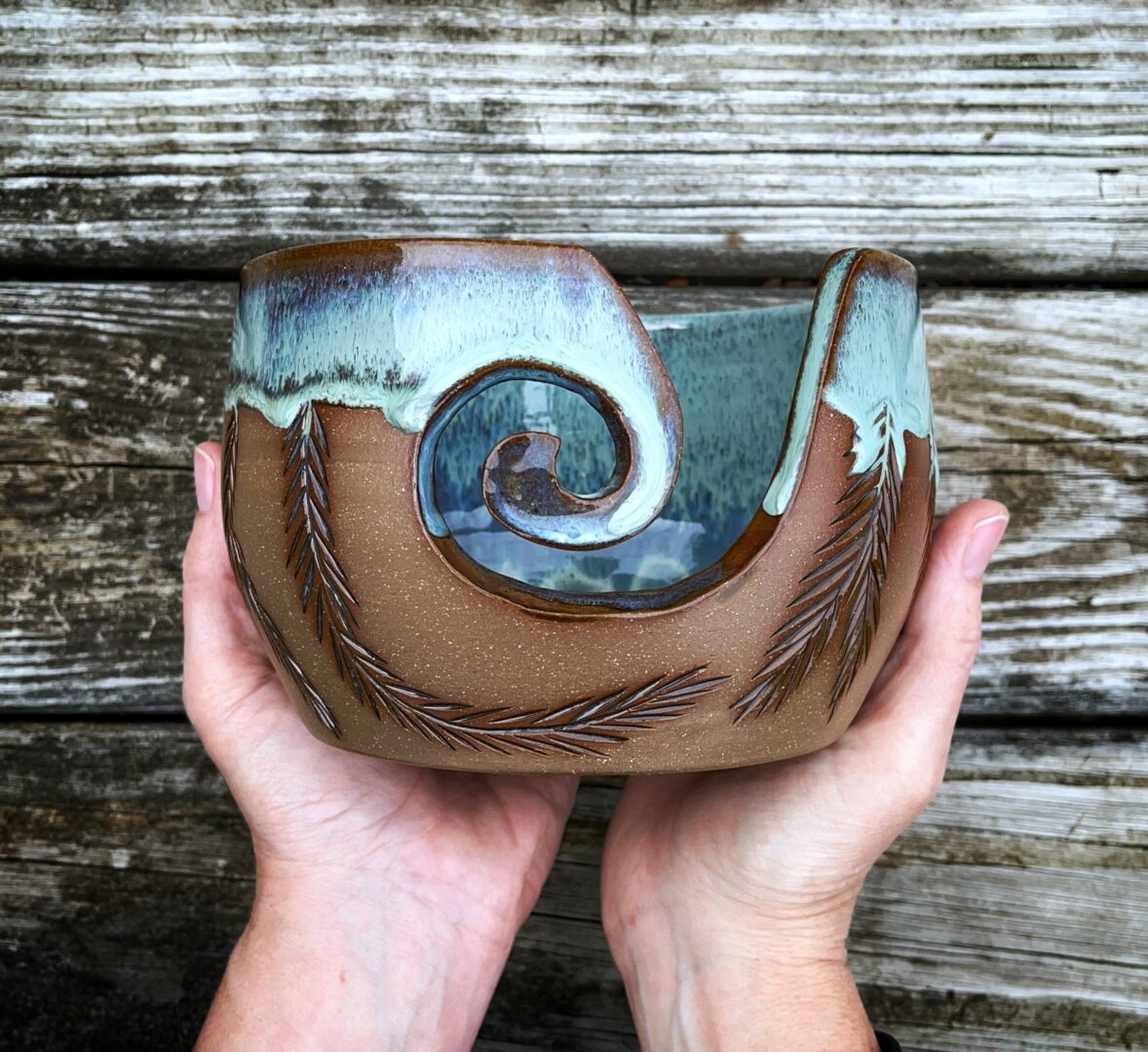
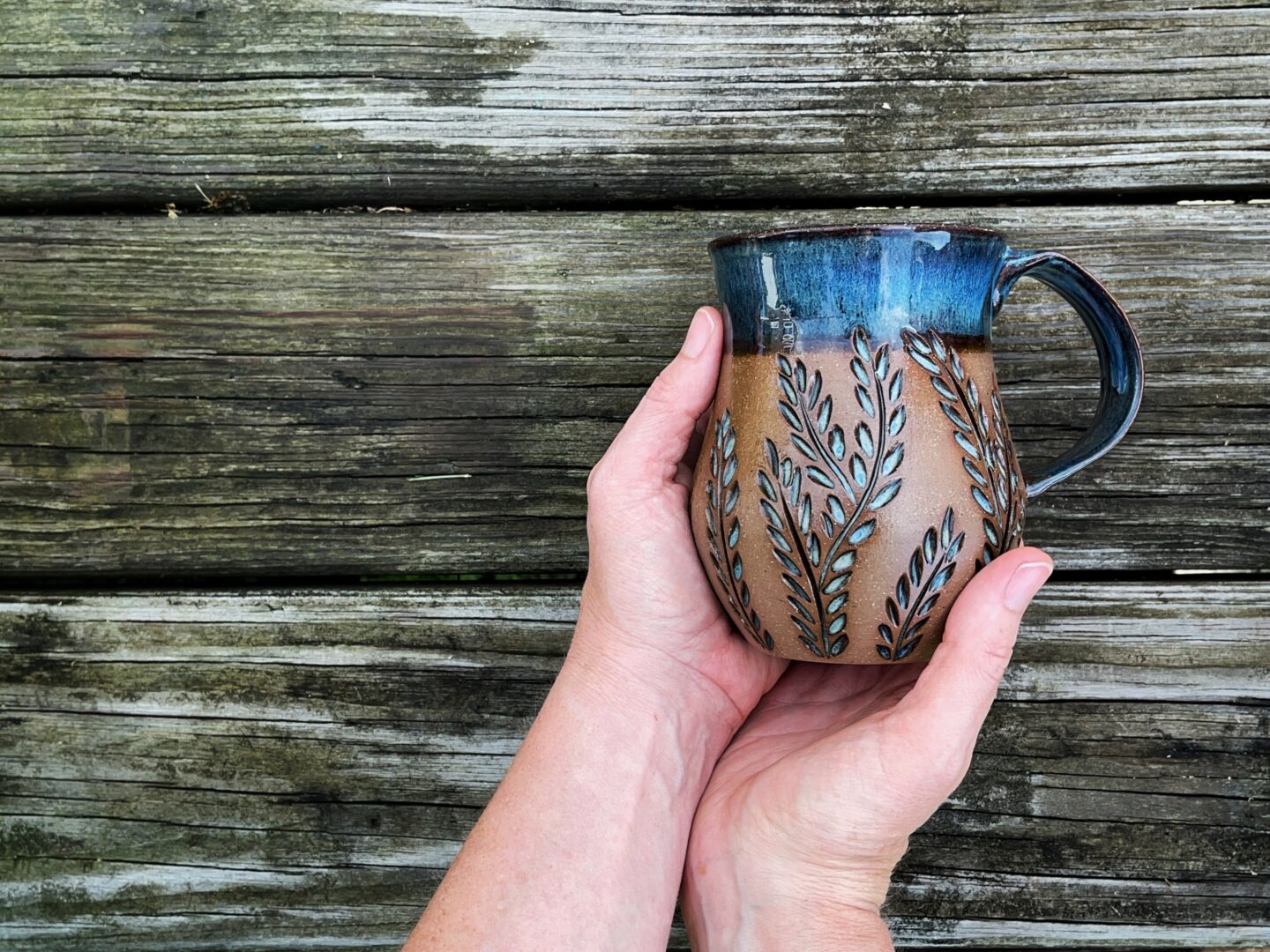
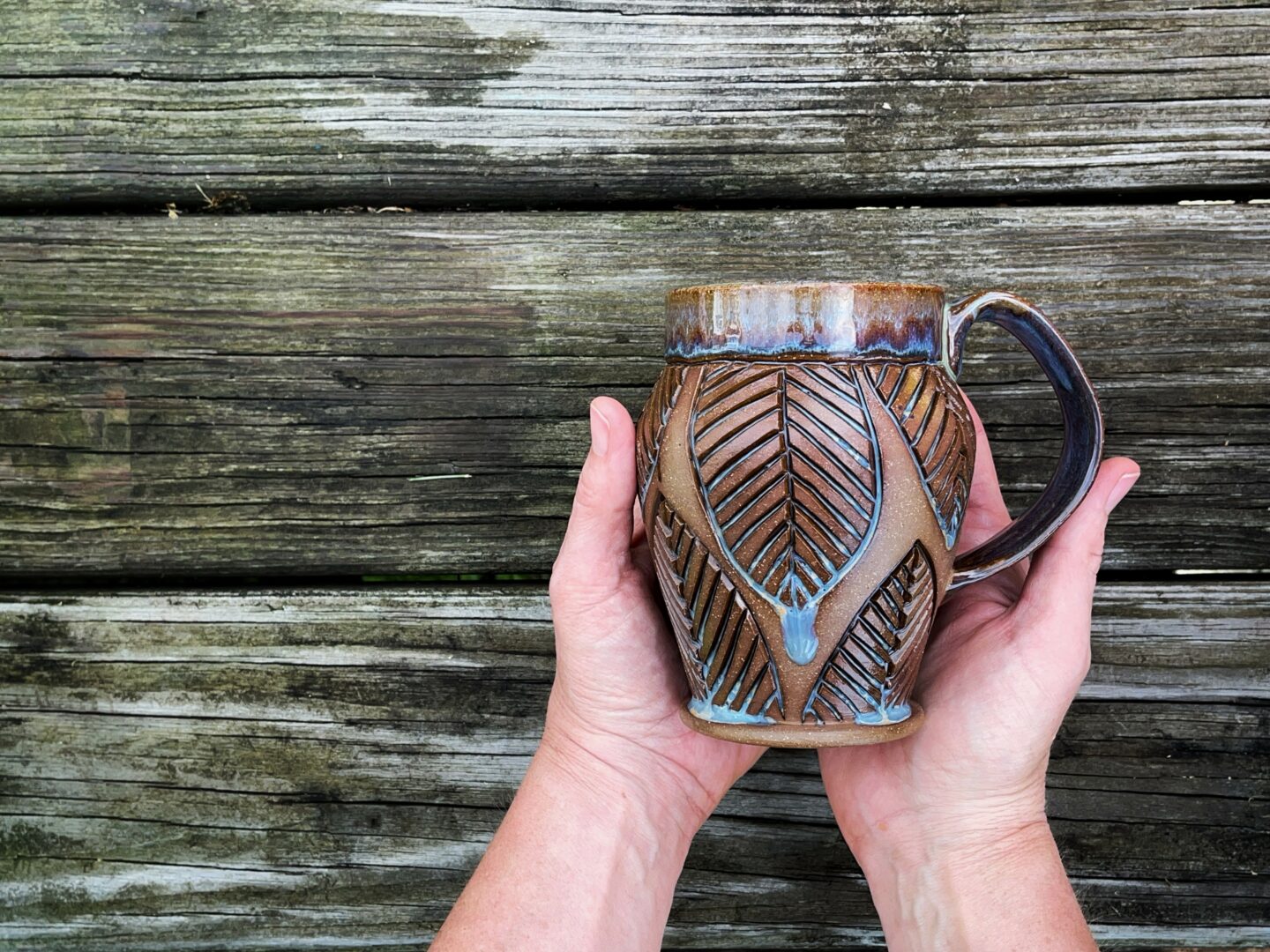
Image Credits
Headshot photo credit: Stevan Knapp
All other photos were taken by me.
so if you or someone you know deserves recognition please let us know here.

